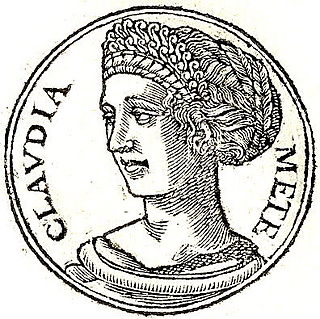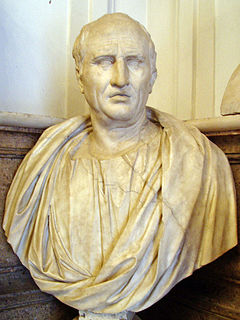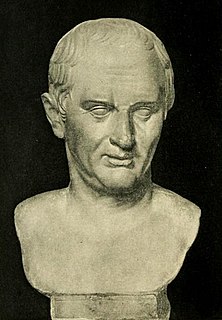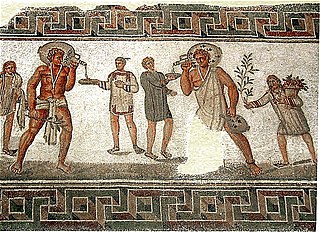A Venefica was a Roman sorceress who used drugs, potions, and poison for several reasons. Venefica means "a female who poisons" in Latin. The word appears in Roman authors such as Cicero and Horace. Ovid uses it of Medea the sorceress in his Metamorphoses. Later it appears in one of Sir Francis Bacon's Essays,"Of Friendship" in the following lines:
"And it seemeth his favour was so great, as Antonius, in a letter which is recited verbatim in one of Cicero’s Philippics, calleth him ‘venefica,’ witch, —as if he had enchanted Caesar."
Venefica under the above definition is found in the book Raptor by Gary Jennings, where a venefica slave is purchased in order to assist in carrying out revenge. The setting of this book is in the declining Roman Empire around 500 A.D. In this novel, veneficas are defined as "girl slaves who are, from their infancy, fed certain poisons, first in minute amounts, then in increasing doses throughout their upbringing. By the time they are grown to maidenhood, their own bodies are accustomed to these substances and are unharmed by them. However, so virulent is the accumulated poison, that a man who beds with a venefica - or anyone who partakes of any of her juices - dies on the instant."

Marcus Tullius Cicero was a Roman statesman, lawyer, scholar, philosopher, and academic skeptic, who tried to uphold optimate principles during the political crises that led to the establishment of the Roman Empire. His extensive writings include treatises on rhetoric, philosophy and politics, and he is considered one of Rome's greatest orators and prose stylists. He came from a wealthy municipal family of the Roman equestrian order, and served as consul in 63 BC.

The First Triumvirate was an informal alliance among three prominent politicians in the late Roman Republic: Gaius Julius Caesar, Gnaeus Pompeius Magnus and Marcus Licinius Crassus.

Clodia, nicknamed Quadrantaria, and occasionally referred to in scholarship as Clodia Metelli, was one of three known daughters of the ancient Roman patrician Appius Claudius Pulcher.

The Laws of the Twelve Tables was the legislation that stood at the foundation of Roman law. Formally promulgated in 449 BC, the Tables consolidated earlier traditions into an enduring set of laws.
Gaius Verres was a Roman magistrate, notorious for his misgovernment of Sicily. His extortion of local farmers and plundering of temples led to his prosecution by Cicero, whose accusations were so devastating that his defence advocate could only recommend that Verres should leave the country. Cicero's prosecution speeches were later published as the Verrine Orations.
Marcus Antonius was a Roman politician of the Antonius family and one of the most distinguished Roman orators of his time. He was also the grandfather of the famous general and triumvir, Mark Antony.
Titus Pomponius Atticus was a Roman editor, banker, and patron of letters, best known for his correspondence and close friendship with prominent Roman statesman Marcus Tullius Cicero. Atticus was from a wealthy Roman family of the equestrian class and from the Pomponia gens.

Pro Caelio is a speech given on 4 April 56 BC, by the famed Roman orator Marcus Tullius Cicero in defence of Marcus Caelius Rufus, who had once been Cicero's student but more recently was a political rival. Cicero's reasons for defending Caelius are uncertain, but various theories have been postulated.
Marcus Tullius Tiro was first a slave, then a freedman of Cicero from whom he received his nomen and praenomen. He is frequently mentioned in Cicero's letters. After Cicero's death Tiro published his former enslaver's collected works of letters and speeches. He also wrote a considerable number of books himself, and is thought to have invented an early form of shorthand.

De re publica is a dialogue on Roman politics by Cicero, written in six books between 54 and 51 BC. The work does not survive in a complete state, and large parts are missing. The surviving sections derive from excerpts preserved in later works and from an incomplete palimpsest uncovered in 1819. Cicero uses the work to explain Roman constitutional theory. Written in imitation of Plato's Republic, it takes the form of a Socratic dialogue in which Scipio Aemilianus takes the role of a wise old man.
Lucius Licinius Crassus was a Roman orator and statesman. He was considered the greatest orator of his day, most notably by his pupil Cicero. Crassus is also famous as one of the main characters in Cicero's work De Oratore, a dramatic dialogue on the art of oratory set just before Crassus' death in 91 BC.

The "Pro Tito Annio Milone ad iudicem oratio" is a speech made by Marcus Tullius Cicero in 52 BC on behalf of his friend Titus Annius Milo. Milo was accused of murdering his political enemy Publius Clodius Pulcher on the Via Appia. Cicero wrote the speech after the hearing and so the authenticity of the speech is debated among scholars.
"In Verrem" is a series of speeches made by Cicero in 70 BC, during the corruption and extortion trial of Gaius Verres, the former governor of Sicily. The speeches, which were concurrent with Cicero's election to the aedileship, paved the way for Cicero's public career.

Slavery in ancient Rome played an important role in society and the economy. Besides manual labour, slaves performed many domestic services and might be employed at highly skilled jobs and professions. Accountants and physicians were often slaves. Slaves of Greek origin in particular might be highly educated. Unskilled slaves, or those sentenced to slavery as punishment, worked on farms, in mines, and at mills.

Virtus was a specific virtue in Ancient Rome. It carries connotations of valor, manliness, excellence, courage, character, and worth, perceived as masculine strengths. It was thus a frequently stated virtue of Roman emperors, and was personified as a deity—Virtus.

Publius Vedius Pollio was a Roman of equestrian rank, and a friend of the Roman emperor Augustus, who appointed him to a position of authority in the province of Asia. In later life he became infamous for his luxurious tastes and cruelty to his slaves – when they displeased him, he had them fed to "lampreys" that he maintained for that purpose, which was deemed to be an exceedingly cruel act. When Vedius tried to apply this method of execution to a slave who broke a crystal cup, Emperor Augustus was so appalled that he not only intervened to prevent the execution but had all of Pollio's valuable drinking vessels deliberately broken. This incident, and Augustus's demolition of Vedius's mansion in Rome he inherited in his will, were frequently referred to in antiquity in discussions of ethics and of the public role of Augustus.

The personal life of Marcus Tullius Cicero provided the underpinnings of one of the most significant politicians of the Roman Republic. Cicero, a Roman statesman, lawyer, political theorist, philosopher, and Roman constitutionalist, played a critical role in the transformation of the Roman Republic into the Roman Empire. A contemporary of Julius Caesar, Cicero is widely considered one of Rome's greatest orators and prose stylists.

The political career of Marcus Tullius Cicero began in 76 BC with his election to the office of quaestor, and ended in 43 BC, when he was assassinated upon the orders of Mark Antony. Cicero, a Roman statesman, lawyer, political theorist, philosopher, and Roman constitutionalist, reached the height of Roman power, the Consulship, and played a critical role in the transformation of the Roman Republic into the Roman Empire. A contemporary of Julius Caesar, Cicero is widely considered one of Rome's greatest orators and prose stylists.
The gens Albia was a minor plebeian family at Rome. They were of senatorial rank during the latter part of the Republic, but the only of this gens who obtained the consulship was Lucius Albius Pullaienus Pollio, in AD 90. Other Albii are known from various parts of Italy.

The nundinae, sometimes anglicized to nundines, were the market days of the ancient Roman calendar, forming a kind of weekend including, for a certain period, rest from work for the ruling class (patricians).